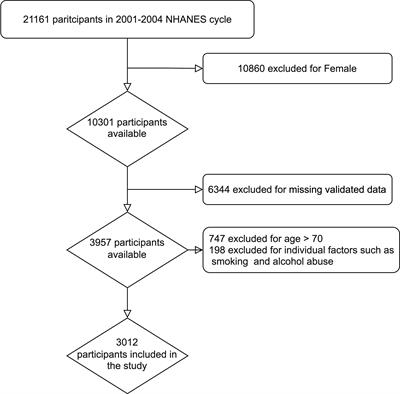devon54u919306
devon54u919306
The Affect of Climate Change On Global Agriculture
Climate change is some of the urgent issues going through humanity at this time, and its effects on international agriculture are profound and far-reaching. As temperatures rise, weather patterns shift, and excessive weather occasions develop into more frequent, the agricultural sector should adapt to ensure meals safety for the rising global population. This report examines the various methods through which climate change is impacting agriculture, the challenges that farmers face, and potential methods for adaptation and mitigation.
The results of Local weather Change on Agriculture
- Temperature Increases: Rising international temperatures have an effect on crop yields immediately. Most crops have optimal temperature ranges for development, and exceeding these ranges can lead to reduced yields. When you loved this information and you would want to receive much more information about erectiledysfunctiontreatments.online i implore you to visit our web site. For example, staple crops akin to wheat, rice, and maize have proven sensitivity to temperature will increase, with studies suggesting that yields could lower by up to 10% for each 1°C rise in temperature.
- Altered Precipitation Patterns: Local weather change is inflicting shifts in precipitation patterns, leading to each droughts and floods. Some areas may experience heavier rainfall, resulting in flooding that can destroy crops and erode soil, whereas others might endure from prolonged dry spells that deplete water resources important for irrigation. These changes can result in crop failures and increased food insecurity.
- Soil Degradation: Climate change exacerbates soil degradation through erosion, lack of nutrients, and elevated salinity. Extreme weather occasions can strip away topsoil, whereas rising temperatures can lead to increased evaporation, additional depleting soil moisture. Healthy soil is crucial for sustainable agriculture, and its degradation can have lengthy-term impacts on food manufacturing.
- Pests and Diseases: Warmer temperatures and changing climates can develop the range and lifecycle of agricultural pests and diseases. Crops that had been beforehand resilient to certain pests may grow to be vulnerable as these organisms adapt to new circumstances. This will result in increased pesticide use, which has implications for each human well being and the atmosphere.
- Crop Selection and Biodiversity: Local weather change threatens agricultural biodiversity by altering the habitats through which various crops and livestock species thrive. As farmers may be pressured to abandon traditional crop varieties which might be no longer suited to altering situations, this will result in a lack of genetic variety, which is essential for resilience against pests, diseases, and local weather variability.
Challenges Faced by Farmers
Farmers all over the world are grappling with the quick and long-time period challenges posed by climate change. These challenges embrace:

- Economic Pressures: Increased costs related to crop failures, insurance coverage, and the need for brand new technologies can strain farmers’ finances. Many smallholder farmers, notably in growing countries, lack the assets to adapt to those adjustments, making them notably weak.
- Access to Resources: Restricted access to water, seeds, and agricultural expertise can hinder farmers’ means to adapt to climate change. In regions the place irrigation is important, competitors for water sources can lead to conflicts and additional exacerbate food insecurity.
- Coverage and Assist Programs: In many cases, authorities policies don’t adequately assist farmers in transitioning to more sustainable practices or in accessing the assets they should adapt. This lack of help can hinder efforts to combat the impacts of climate change on agriculture.
Strategies for Adaptation and Mitigation
To deal with the challenges posed by climate change, numerous methods may be employed to promote resilience in agriculture:
- Sustainable Agricultural Practices: Implementing sustainable farming practices corresponding to crop rotation, agroforestry, and organic farming can improve soil health, improve biodiversity, and scale back dependency on chemical inputs. These practices will help farmers adapt to altering conditions whereas additionally mitigating the consequences of climate change.
- Climate-Resilient Crop Varieties: Growing and selling local weather-resilient crop varieties that can withstand larger temperatures, drought, and pests is important. Analysis and funding in biotechnology and traditional breeding strategies might help create crops which might be higher suited to future situations.
- Water Management: Environment friendly water administration practices, akin to rainwater harvesting, drip irrigation, and the usage of drought-resistant crops, can assist farmers cope with water scarcity. Insurance policies that promote equitable access to water resources are additionally essential for supporting agricultural resilience.
- Training and Training: Providing farmers with training and training on sustainable practices, local weather adaptation techniques, and resource administration can empower them to make informed decisions about their farming operations. Extension companies can play a significant role in disseminating information and greatest practices.
- Coverage Help: Governments and worldwide organizations must prioritize agricultural resilience in their climate motion plans. This contains offering financial assist for farmers to adopt climate-good practices, investing in agricultural analysis, and developing insurance policies that promote sustainable land use.
Conclusion
The influence of climate change on world agriculture is a complex issue that requires urgent consideration and motion. As temperatures rise and weather patterns develop into increasingly unpredictable, the agricultural sector should adapt to make sure food safety for future generations. By embracing sustainable practices, investing in analysis and improvement, and supporting farmers by way of coverage and schooling, it is feasible to construct a more resilient agricultural system that can withstand the challenges posed by climate change. The way forward for food safety depends on our collective means to deal with these challenges head-on and work in direction of a sustainable agricultural panorama.



